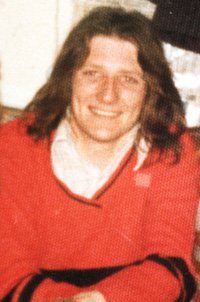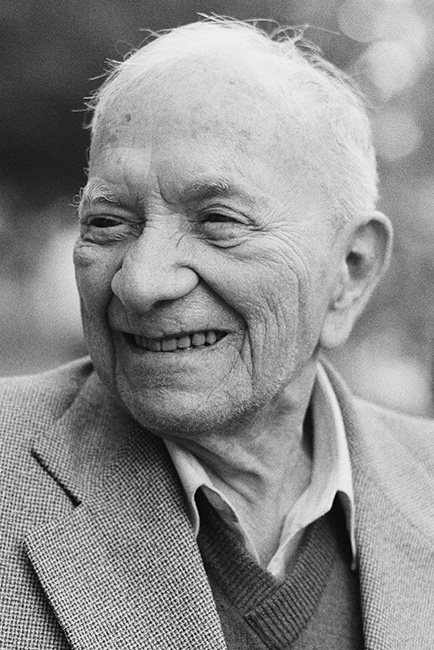In June 1972, at the age of 18, Bobby moved with his family to the Twinbrook housing estate in west Belfast, and had to leave Rathcoole due to loyalist intimidation.
He married Geraldine Noade. His son, Gerard, was born 8 May 1973. Noade soon left to live in England with their son.
Sands' sister, Bernadette Sands McKevitt, is also a prominent Irish Republican. Along with her husband Michael McKevitt she helped to form the 32 County Sovereignty Movement and is accused of involvement with the Real Irish Republican Army. Sands McKevitt is opposed to the Belfast Agreement, stating that "Bobby did not die for cross-border bodies with executive powers. He did not die for nationalists to be equal British citizens within the Northern Ireland state."
Immediately after his sentence, Sands was implicated in a ruckus and spent the first 22 days "on boards" (all furniture was removed from his cell) in Crumlin Road Prison, 15 days naked, and a No. 1 starvation diet (bread and water) every 3 days.
Republican prisoners organised a series of protests seeking to regain their previous Special Category Status which would free them from some ordinary prison regulations. This began with the "blanket protest" in 1976, in which the prisoners refused to wear prison uniform and wore blankets instead. In 1978, after a number of attacks on prisoners leaving their cells to "slop out" (i.e., empty their chamber pots), this escalated into the "dirty protest", wherein prisoners refused to wash and smeared the walls of their cells with excrement.
The sudden vacancy in a seat with a nationalist majority of about five thousand was a valuable opportunity for Sands' supporters to unite the nationalist community behind their campaign. Pressure not to split the vote led other nationalist parties, notably the Social Democratic and Labour Party, to withdraw, and Sands was nominated on the label "Anti H-Block / Armagh Political Prisoner". After a highly polarised campaign, Sands narrowly won the seat on 9 April 1981, with 30,493 votes to 29,046 for the Ulster Unionist Party candidate Harry West - and also become the youngest MP at the time. However Sands died in prison less than a month afterwards, without ever having taken his seat in the Commons.
Following Sands' success, the British Government introduced the Representation of the People Act 1981 which prevents prisoners serving jail terms of more than one year in either the UK or the Republic of Ireland from being nominated as candidates in British elections. This law was introduced in order to prevent the other hunger strikers from being elected to the British parliament.
- The right not to wear a prison uniform;
- The right not to do prison work;
- The right of free association with other prisoners, and to organise educational and recreational pursuits;
- The right to one visit, one letter and one parcel per week;
- Full restoration of remission lost through the protest.
The announcement of Sands's death prompted several days of rioting in nationalist areas of Northern Ireland. A milk deliverer, Eric Guiney, and his son, Desmond, died as a result of injuries sustained when their milk float crashed after being stoned by rioters in a predominantly nationalist area of north Belfast. Over 100,000 people lined the route of Sands's funeral and he was buried in the 'New Republican Plot' alongside 76 others. Their grave is maintained and cared for by the National Graves Association, Belfast. Sands was a Member of the Westminster Parliament for 25 days, though he never took his seat or the oath.
In response to a question in the House of Commons on 5 May 1981, British Prime Minister Margaret Thatcher said, "Mr. Sands was a convicted criminal. He chose to take his own life. It was a choice that his organisation did not allow to many of its victims".
Sands was survived by his parents, siblings, and his son, Gerard.





2.svg/477px-Grandes_Armes_Imp%C3%A9riales_(1804-1815)2.svg.png)







_1989%2C_MiNr_851.jpg)

.jpg/1280px-Freedom_Rider_plaque_(4653382530).jpg)



.svg/1024px-Coat_of_Arms_of_Margaret_Thatcher%2C_The_Baroness_Thatcher_(1995%E2%80%932013).svg.png)




